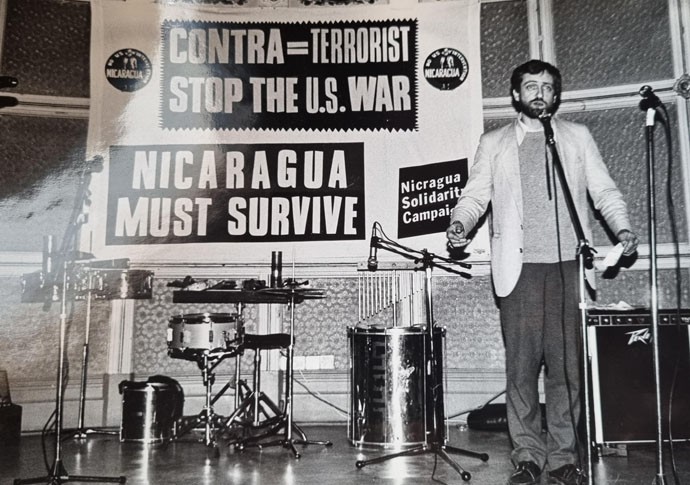Charity was targeted by ‘spy cops’
Association was one of several groups left in the dark about discredited police surveillance tactics
Friday, 12th July 2024 — By Tom Foot

The Islington Managua Friendship Association was monitored by the Special Demonstrations Squad in 1988
THE Islington Tribune broke the news to a charity this week that it had been targeted by “spy cops” in the 1980s, one of several groups left in the dark about discredited police surveillance tactics.
The Islington Managua Friendship Association was named in documents published for the first time by the Undercover Policing Inquiry this week.
It is one of around 20 “organisations that were directly penetrated or closely monitored” by the Special Demonstrations Squad in 1988.
The group often had just a handful of people attending meetings and was at the time focused on raising awareness about the plight of people living in poverty in Nicaragua.
“Personally, despite anger at the existence of secret, illegal units, I find it more laughable than threatening,” said Brian Mack, who still volunteers for the charity and was one of its founders.
“From the redacted letter I assume all the SDS members were male which would again reduce the potential infiltrators. If there was one, I suspect they would quickly have concluded that there was nothing to see here. I find it more likely that we were added to the list almost randomly to bulk up the bid for more funds.”
Full details of whether the group was infiltrated by detectives or simply monitored are expected to be revealed during an evidence session on July 23 when undercover officer “Mark Kerry” gives evidence to the inquiry.
The inquiry – the longest-running and most expensive in British history – is probing the workings of the SDS over four decades.
The group was set up by police in a bid to clamp down on violent disorder but ended up discredited after it was revealed that officers had fathered children with activists they were spying on. The names of dead children were also used as codenames by some officers.
The SDS has been criticised for targeting left-wing groups and individuals who were not intent on violent disorder but simply agitating for a better world.
The inquiry has also revealed how huge police resources were ploughed into monitoring campaign groups and political organisations including the Socialist Workers Party, Animal Liberation Front – and also tiny organisations like the IMFA.
Mr Mack explained how the IMFA had set up in 1987 to raise consciousness about poverty and raise funds for a particularly poor neighbourhood in the capital, Managua, but rarely had more than five or six people at its meetings.
The group bought a water pump, funding electrification, medical books and raised £120,000 to set up and pay the salaries of seven teachers at a nursery and primary school. It is still fundraising today through pub quiz nights.
Mr Mack said: “Two of the participants from that year are now trustees of the charity – we have long given up on raising consciousness and concentrated solely on funding the school. The others from that time fell away fairly quickly and Norman Beddington, the founder and a councillor, died last year.
“The minutes from 1988 show there were never more than five people at the committee meetings but they did raise money at public events and were supported by the council and the local MP [Jeremy Corbyn].”
The inquiry also heard this week from Albert Beale, a pacifist who edited Peace News and organised for London Greenpeace from its offices in Caledonian Road. He was spied on by SDS officers including Bob Lambert, who fathered a child with an activist, and went on to become a senior lecturer at the London Metropolitan University in Holloway.
He resigned after the scandal broke in 2015 following a picketing campaign outside the university in Holloway Road.
Rob Evans, a Guardian journalist who wrote the book Undercover about the spy cops scandal, told the Tribune many groups that had been either infiltrated or spied on by the SDS had not been contacted by the inquiry.